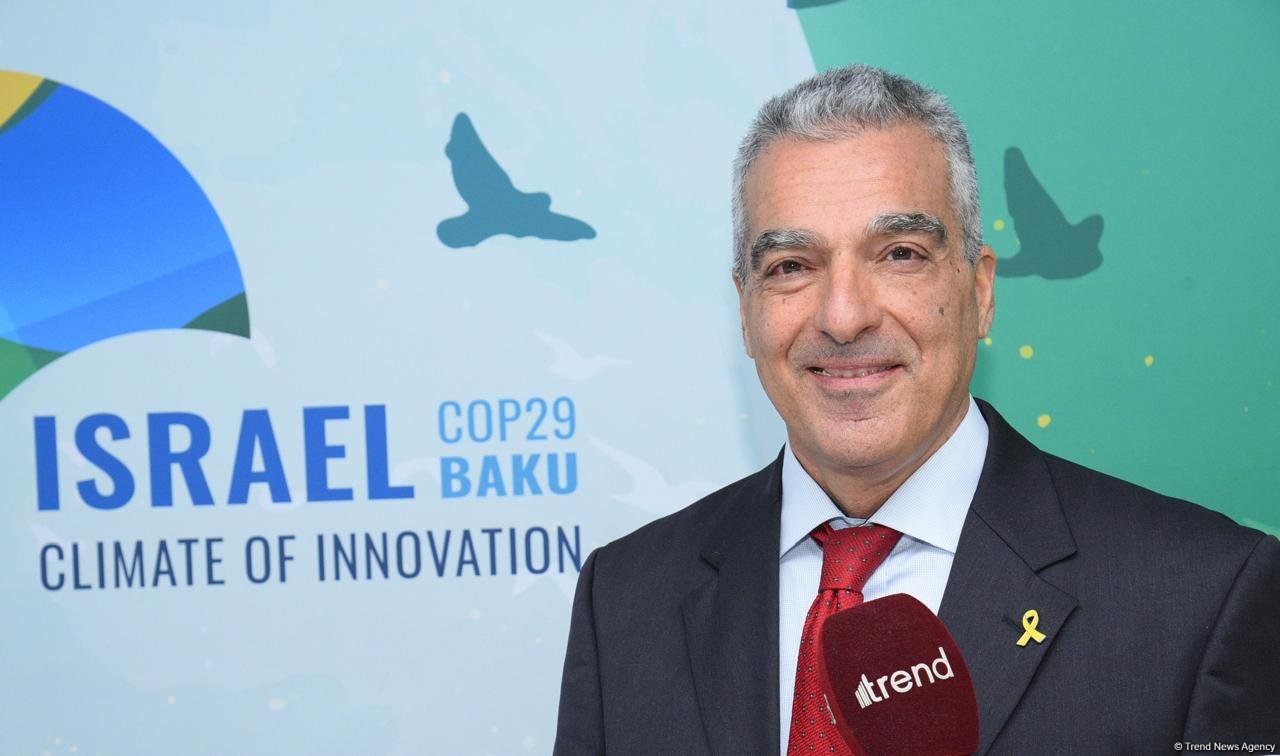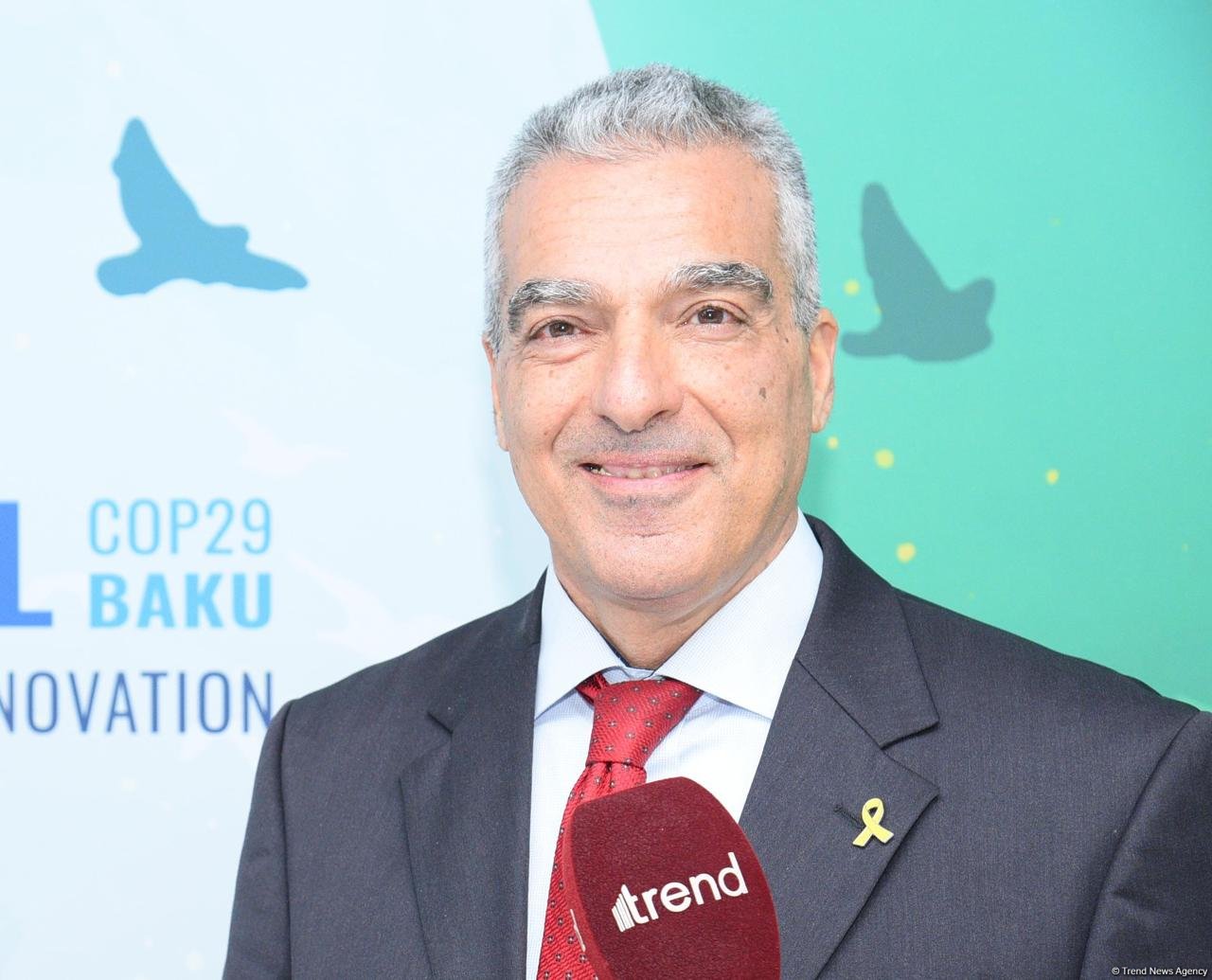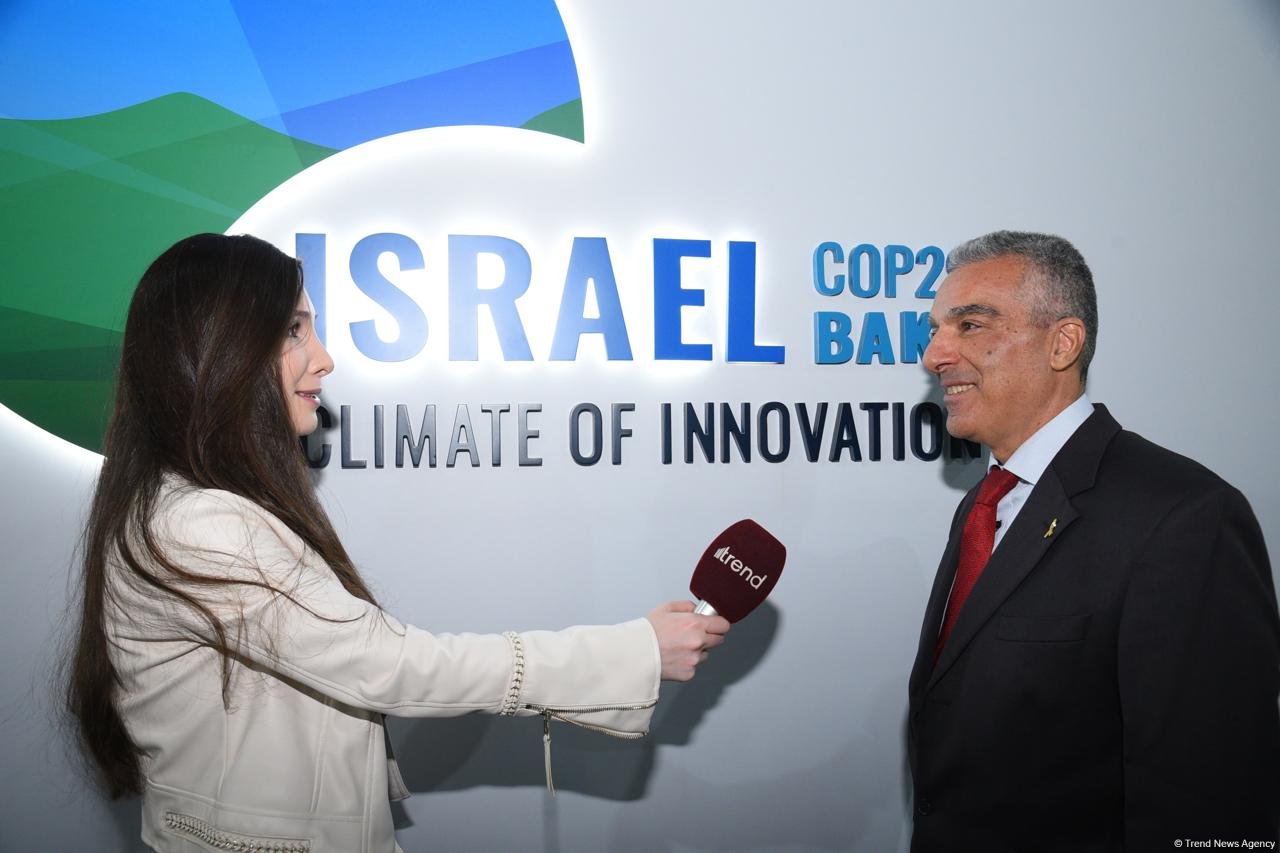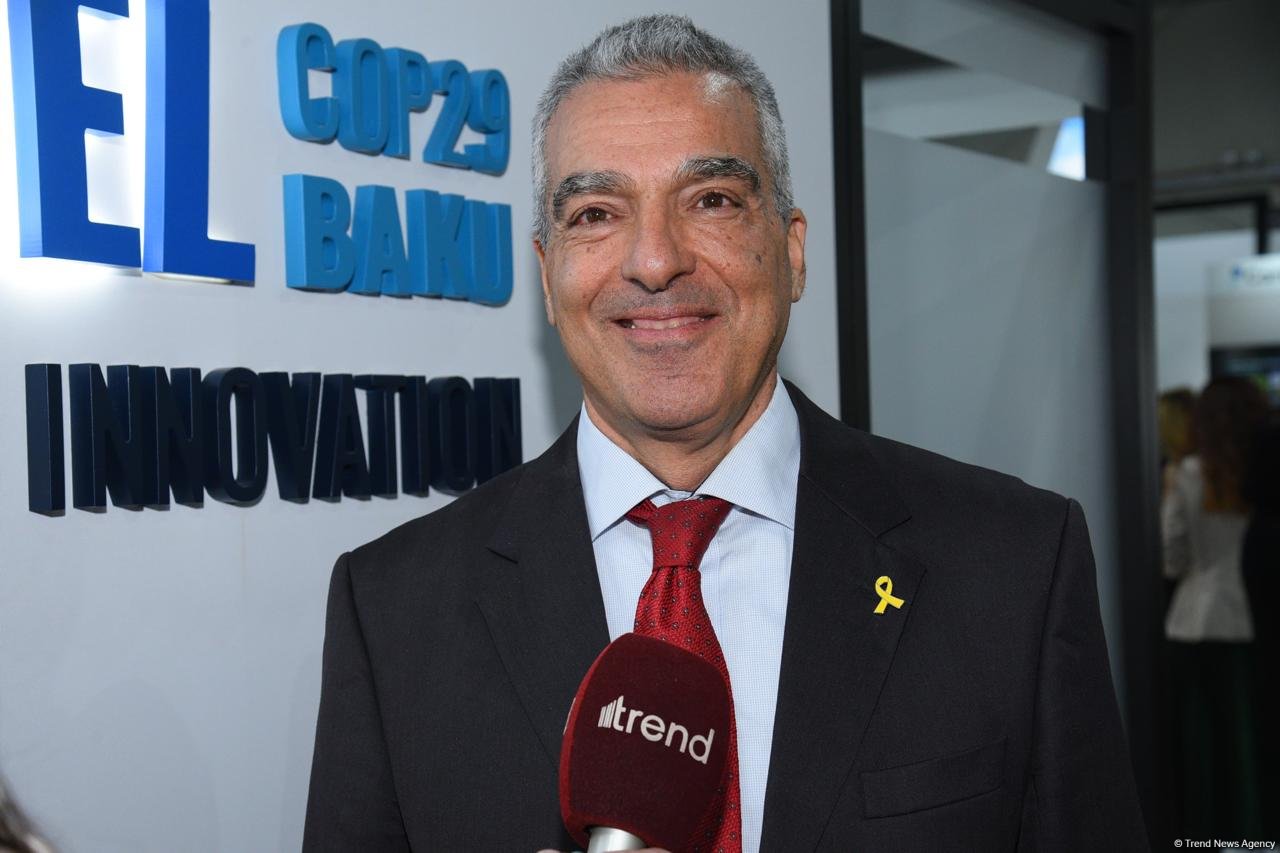BAKU, Azerbaijan, November 17. As part of COP29 in Baku, Trend News Agency proudly presents COP for Hope, a special project offering an unparalleled platform to hear from world leaders and trailblazers in politics, economics, science, and ecology, all united by a shared commitment to addressing today’s pressing climate challenges.
Today, we are honored to speak with Ambassador Gideon Behar, Israel's Special Envoy for Climate Change and Sustainability.
In an exclusive interview with Trend on the sidelines of COP29, he said that COP29 is going so far very good.
“We witnessed a major achievement on the very first day with the agreement on Article 6.4, which focuses on carbon markets,” Ambassador Behar said. “We greatly appreciate Azerbaijan's role in this success and the exceptional hospitality extended by the Azerbaijani government and people to participants from nearly 200 countries.”
Ambassador Behar expressed hope for the adoption of an effective financial mechanism during COP29, noting the growing recognition of the urgent need for increased climate financing, especially for developing and small island nations already grappling with the impacts of climate change.
“This year is the hottest year on record, and the past ten years have been the warmest in history. We must act now. We hope for strong decisions on mitigation and the finalization of the carbon market mechanism at this COP,” he emphasized.
The envoy called for collective action, urging countries, multilateral development banks, international financial systems, and the private sector to step up. Highlighting the role of innovation, he pointed to Israel’s delegation of 20 startups showcasing cutting-edge solutions in areas like water, agriculture, food security, and renewable energy.
“One Israeli startup produces water from air, while another repurposes unsellable agricultural products to prevent waste and emissions. A third focuses on rehabilitating wetlands to capture CO2 from the atmosphere,” he explained.
The ambassador also underscored the robust cooperation between Israel and Azerbaijan, citing examples like water management, renewable energy, and agricultural innovation. “The Israeli company Mekorot is consulting with the Azerbaijani government, and our academic collaboration includes a branch of the Israeli Technion Institute here,” he said.
Ambassador Behar announced the signing of a memorandum of understanding between Israel and Azerbaijan on climate education, aimed at teaching schoolchildren about climate issues and potentially expanding into a regional program. “This collaboration reflects the close friendship and alliance between our countries, and we aim to deepen it further,” he added.
Israel’s innovation, according to Ambassador Behar, is its greatest contribution to addressing the climate crisis. “With around 1,300 companies and startups working in climate innovation, Israel offers solutions in carbon capture, energy efficiency, and water management. We hope to strengthen cooperation with Azerbaijan in these areas.”
Stressing the urgency of the climate crisis, he concluded: “This is the critical decade. If we don’t act now, we risk reaching the point of no return. Reducing emissions, transitioning to renewables, scaling up climate finance, and investing in innovation are not just environmental imperatives—they are also opportunities for growth and collaboration.”














